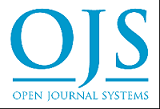Efektivitas penggunaan terapi topical herbal pada perawatan ulkus kaki diabetik: A systematic literature review
DOI:
https://doi.org/10.33024/hjk.v18i2.281Keywords:
Diabetes Melitus, Herbal Tropis, Ulkus Kaki Diabetik (UKD)Abstract
Background: Diabetic foot ulcers are a complication that affects the health and quality of life of diabetes mellitus patients. Topical herbs are botanical treatments used to treat diabetic foot ulcers, with the aim of speeding up the healing process and reducing inflammation by applying them directly to the affected area.
Purpose: To identify the effectiveness of topical herbal use in the intervention group compared to those receiving standard care in the control group in type 1/type 2 DM patients.
Method: Using a systematic review by selecting articles according to a randomized controlled trial (RCT) research design and arranged based on Preferred Reporting Items For Systematic Reviews and Meta Analyzes (PRISMA). Article searches were carried out through a number of databases, Science Direct, Clinical Key, Pubmed, Proquest, and Sage published in the last 5 years (2018-2023).
Results: Wound healing in diabetics is often complicated and involves many things besides local infection. In addition, vascular problems resulting in systemic infections and a decrease in the immune system make it more difficult for diabetic wounds to heal. The use of topical herbal medicine can improve the healing of diabetic foot ulcers and does not have significant side effects. To manage superficial diabetic foot ulcers, topical use of herbs may be an effective, safe, accessible, and inexpensive adjunct option to conventional therapy.
Conclusion: The use of topical herbal therapy improves the healing of diabetic foot ulcers and does not have significant side effects.
Keywords: Diabetic Foot Ulcers (UKD); Diabetes Mellitus; Tropical Herbs.
Pendahuluan: Ulkus kaki diabetik merupakan komplikasi yang mempengaruhi kesehatan dan kualitas hidup pasien diabetes melitus. Herbal topikal adalah perawatan botani yang digunakan untuk mengatasi ulkus kaki diabetik, dengan tujuan mempercepat proses penyembuhan dan mengurangi peradangan dengan menerapkannya langsung ke daerah yang terkena.
Tujuan: Untuk mengidentifikasi efektifitas penggunaan topical herbal pada kelompok intervensi dibandingkan dengan yang menerima perawatan standar pada kelompok kontrol pada pasien DM tipe 1/tipe 2.
Metode: Menggunakan systematic review dengan memilih artikel sesuai desain penelitian randomized controlled trial (RCT) dan disusun berdasarkan Preferred Reporting Items For Systematic Reviews and Meta Analyzes (PRISMA). Pencarian artikel dilakukan melalui sejumlah database, Science Direct, Clinical Key, Pubmed, Proquest, dan Sage terbitan 5 tahun terakhir (2018-2023).
Hasil: Penyembuhan luka pada penderita diabetes seringkali rumit dan melibatkan banyak hal selain infeksi lokal. Selain itu, masalah vaskular sehingga mengalami infeksi sistemik dan penurunan sistem kekebalan tubuh menyebabkan luka diabetes lebih sulit sembuh. Penggunaan obat topikal herbal dapat meningkatkan penyembuhan ulkus kaki diabetik dan tidak memiliki efek samping yang signifikan. Untuk mengelola ulkus kaki diabetik superfisial, penggunaan topikal herbal dapat menjadi pilihan tambahan yang efektif, aman, mudah diakses, dan murah untuk terapi konvensional.
Simpulan: Penggunaan terapi topical herbal meningkatkan penyembuhan ulkus kaki diabetik dan tidak memiliki efek samping yang signifikan.
Kata Kunci: Diabetes Melitus; Herbal Tropis; Ulkus Kaki Diabetik (UKD).









